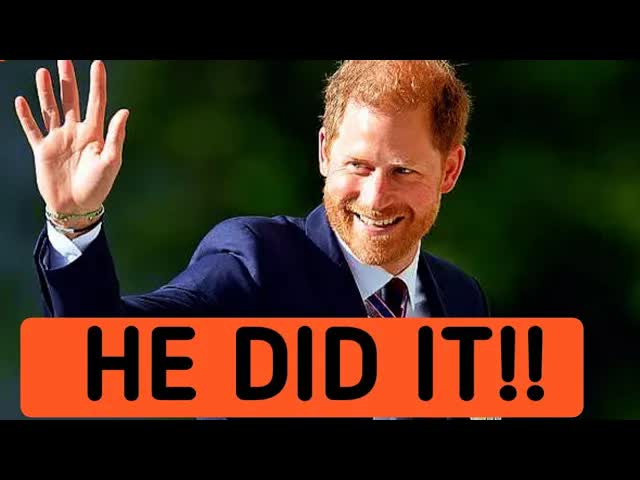In a world where the struggles of servicemen and women often go unnoticed, Prince Harry emerges as a beacon of hope through his dedication to the Invictus Games.
This annual sporting event, which he founded, serves as a powerful platform to celebrate the strength and spirit of those who have been wounded or injured in service to their country.
Today, we explore the inspiring story behind this royal initiative and how it has transformed lives across the globe.
Born into the British royal family, Prince Harry could have easily lived a life of privilege, far removed from the realities faced by ordinary citizens.
However, he chose a different path.
After completing his education at Eton College, he enlisted in the British Army, embracing the rigors of military life at the Royal Military Academy Sandhurst.
This decision not only shaped his character but also laid the groundwork for his future endeavors.
Harry’s military career was anything but ceremonial.
Over a decade of service saw him rise to the rank of captain, with two deployments to Afghanistan, where he experienced the harsh realities of combat firsthand.
His time on the front lines opened his eyes to the profound impact of war, revealing the physical and emotional scars borne by soldiers and their families.
It was during these formative years that he felt a compelling urge to make a difference.
Inspired by the Warrior Games in the United States, Prince Harry envisioned a similar event that would resonate on a global scale.
He wanted to create a space where injured servicemen and women could showcase their resilience and share their stories of recovery.
Thus, the Invictus Games were born—a celebration of the human spirit and a tribute to those who have served.
Launched in 2014, the Invictus Games quickly became a symbol of hope for wounded veterans.
Athletes from around the world compete in various sports, from athletics to wheelchair basketball, demonstrating their remarkable abilities rather than their disabilities.
Each event is a testament to the courage and determination of these individuals, who refuse to be defined by their injuries.
Prince Harry’s passion and unwavering commitment played a crucial role in the success of the Games.
He tirelessly advocated for support from governments, the military, and the public, ensuring that the event would thrive and expand.
His efforts have not only elevated the profile of the Games but have also fostered a greater understanding of the challenges faced by servicemen and women.
But the Invictus Games are about more than just competition; they represent a movement aimed at changing perceptions surrounding disability and injury.
Prince Harry has used this platform to challenge stereotypes and highlight the incredible potential of those who have served.
The Games serve as a reminder that true strength lies not in physical prowess alone, but in the resilience of the human spirit.
The impact of the Invictus Games extends beyond the athletes themselves.
They have sparked conversations around disability and rehabilitation, encouraging society to view injured veterans through a lens of capability rather than limitation.
By showcasing these inspiring stories, Prince Harry has helped cultivate a sense of shared respect and understanding among nations.
Take, for instance, the story of Sarah Rudder, a Marine who was among the first responders at the Pentagon on September 11th.
After suffering a life-altering injury, she found renewed purpose through her participation in the Invictus Games, earning several medals along the way.
Similarly, Paul Weiss, a former Royal Marine, has become one of the most decorated athletes in the Games, proving that adversity can fuel extraordinary achievements.
From its humble beginnings with just 13 participating nations, the Invictus Games have blossomed into a global phenomenon.
The latest edition featured over 500 competitors from 20 countries, reflecting the growing recognition of the Games as a vital platform for rehabilitation and support for wounded veterans.
This expansion underscores the importance of community and camaraderie in the healing process.
As Prince Harry continues to champion the Invictus Games, he remains committed to building a legacy that transcends the event itself.
His journey from soldier to advocate exemplifies the power of empathy and understanding.
He recognizes the challenges faced by those who return to civilian life after service, and he uses his platform to uplift and inspire them.
Looking ahead, the future of the Invictus Games shines brightly.
They have evolved into a movement that embodies hope, resilience, and unity.
Under Prince Harry’s leadership, the Games will continue to inspire countless individuals, reminding us all of the unconquerable spirit that resides within each of us.
Through his dedication, he demonstrates that the journey of recovery is not just about overcoming challenges—it’s about celebrating the triumphs that arise from them.
